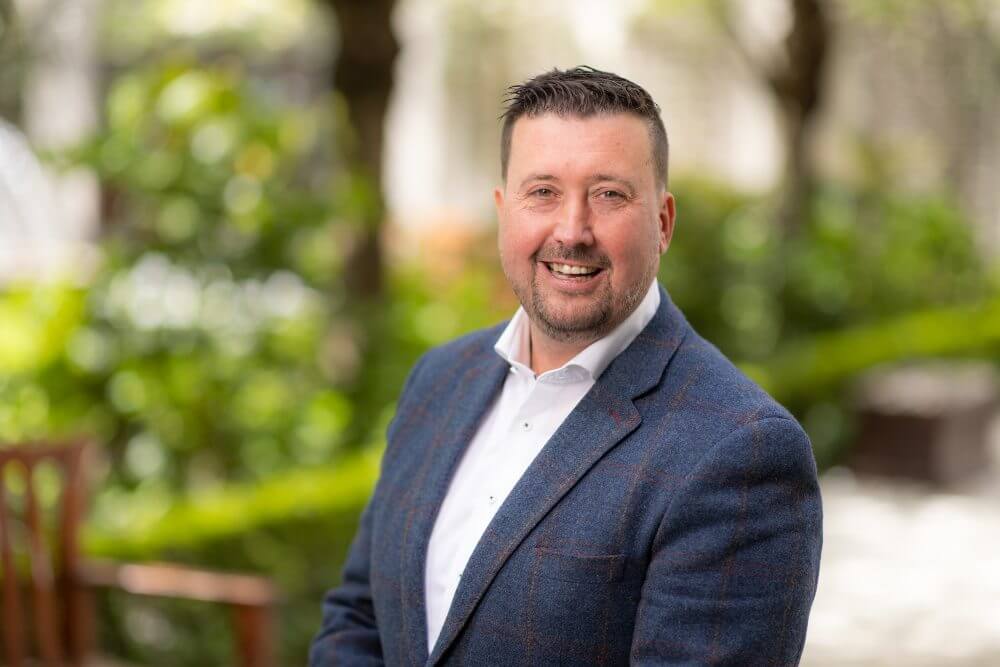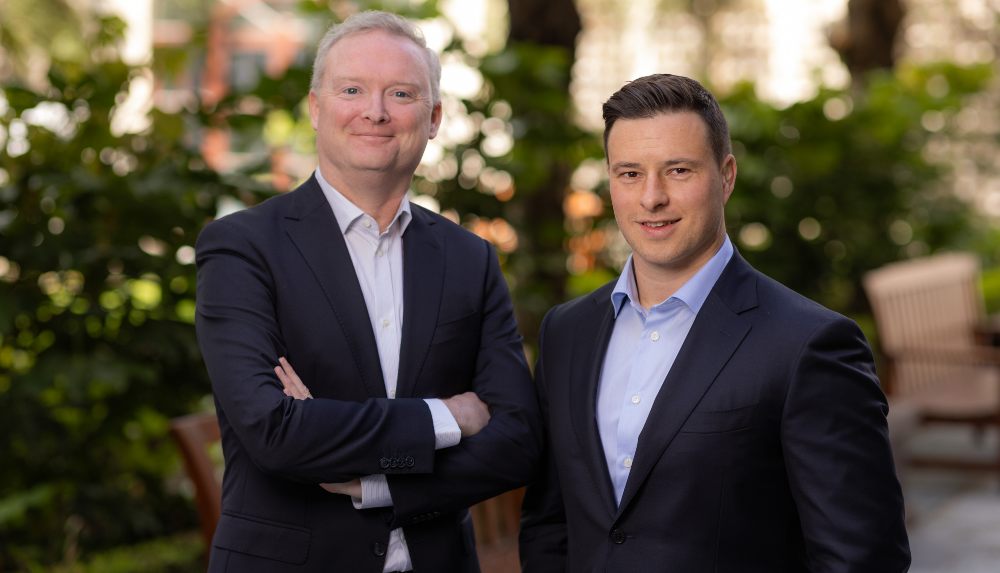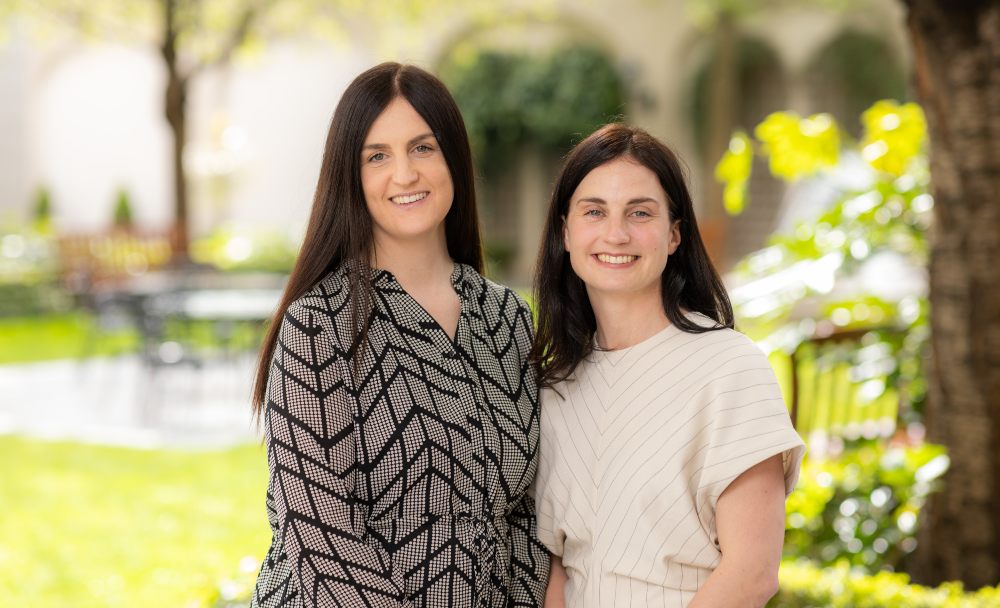Dr Barry Flannery, founder EY Entrepreneur of the Year finalist Xerotech, talks about his ambition to make Ireland a global force in advanced manufacturing.
This year 24 Irish finalists have been named for the EY Entrepreneur of the Year Awards which take place in November. Currently in its 27th year in Ireland, the programme works to recognise, promote, and build a supportive community around Ireland’s high-growth entrepreneurs and is considered one of the strongest programmes globally.
Since its inception, the EY Entrepreneur Of The Year Ireland community has grown to a tight-knit network of more than 600 alumni who harness each other’s wealth of experience, with three quarters (75%) conducting business with one another. Together, the EOY alumni community generates revenues of €25bn, and employs more than 250,000 people across the island of Ireland.
“We did €1m revenue in 2022 and we grew this to €8.2m last year. This summer we did between €10m and €13m as we scaled up significantly”
In the past 10 months the finalists have engaged in a strategic growth programme which includes a week-long CEO Retreat in South Africa.
Driving Ireland’s electric vehicle future
A business that started in Flannery’s parents’ back garden has blossomed into a beacon for Ireland’s industrial future. The Galway-based battery technology firm recently revealed plans to create 100 new jobs to meet growing demand for its battery pack technology.
“Looking to the future I am hopeful that we can help kick-start the manufacturing piece for Ireland. Whether it’s fair or not, I heard someone say that the scale of Irish ambition right now is not to build the next Apple, but just to sell pencils to them. That mentality has to change”
The young business from Claregalway is a world leader in advanced battery system for non-road mobile machinery. Its Hibernium battery pack platform allows heavy-duty machinery to be configured as electric vehicles.
Founded in 2015, the Enterprise Ireland-supported Xerotech has a proven track record of delivering high-performance battery solutions for a wide range of applications, from mining and construction equipment to marine and aviation vehicles.
The company has seen a surge in demand for their products, especially in the non-road mobile machinery sector where the company has emerged as leader in the supply of configurable battery systems already working with global OEMs (original equipment manufacturers).
The young business is leading the world in the space of non-road mobile machinery batteries with customers all over the world.
While Flannery started the business in 2015, he explains that it really began to pick up pace in 2017 after he finished his PhD at NUI Galway.
While the rest of the world is heavily focused on the potential for electric cars, the world of non-road mobile machinery (NRMM) faces different challenges due to the scale of the markets involved and the engineering challenges and R&D costs involved.
And this is where Dr Flannery excels. He likens a typical battery for a hybrid/electric heavy goods vehicle (HGV) or a 400-ton mining truck to the equivalent of four Tesla car batteries bolted together. That’s a simple analogy.
The space in which he operates is unlike the more consumer-driven electric car battery market because of the nature of how heavy trucks are acquired through leasing. “So when interest rates are high, your lease is effectively twice the cost.” As a result, many of Xerotech’s competitors have taken a hammering in the market while the younger and more agile Galway business has navigated a perfect storm.
“There has been a whole market reset in our segment and we dodged a bullet. As a result we are in a more sustainable position than many of our competitors who previously had scaled up significantly.”
What Xerotech does is build a full battery-pack system which it then sells to equipment manufacturers all over the world. “The sentiment is that this type of manufacturing is usually done in Asia, and that’s been true historically. But what you are seeing now is that is shifting back to Ireland for a range of geopolitical reasons.”
What Flannery is really saying is that Ireland is an expert location for advanced manufacturing. “In Galway, we are leaders in medical device manufacturing. We are leaders in semiconductor manufacturing and we are leaders in pharmaceuticals. We do high-tech manufacturing very well. E make something like have of the world’s supply of Botox, two-thirds of the world’s contact lenses.”
I add that we also make Viagra and are one of the world’s largest producers of powdered baby milk, not to mention master-minding the world’s supply chain for iPhones.
“Ireland provides high value products for niche markets, so it’s a premium. When it comes to supplying vehicle batteries to a mining company, the product is relatively expensive so it’s going to be shipped on a boat anyway, so why not do it here. It’s significant too because we are geopolitically stable.”
A vehicle for manufacturing excellence
Xerotech, Flannery says, is at a transition point in its history where it is going to have to scale-up considerably to capitalise on opportunities in the market. “There are some elements that we will do in-house and we are definitely holding on to core manufacturing. Bringing battery cells together and getting them built into blocks and then packs is our core competence.”
As a child growing up, Flannery said he always had an interest in engineering and particularly in energy technology.
“There was always a love of engineering but by my own admission I always considered myself to be unemployable. I had two short stints at jobs during my PhD years, including working at a local factory which I loved. But there was always something about energy, whether it was nuclear fusion or advanced engine technologies, that fascinated me.”
He studied applied physics for his undergraduate at NUI Galway and his PhD was focused around mechanical engineering. “I finished that up a year early and well … I sent straight into this start-up.”
The nucleus of Flannery’s decision to start a business was research he had done into heating and cooling batteries. He found that by benchmarking his theories against Tesla batteries, he figured out a way to be an order of magnitude better in terms of performance. “So from there I built a battery back system and built a business simultaneously.”
Asked about combining his love of science with the realities of running a business, he sounds very similar to another Galway-based entrepreneur John Power of Aerogen. “If you are a technical founder like I am, if you can do nuclear physics then working on a spreadsheet isn’t exactly rocket science. It’s not too hard to understand the principles of business. And yeah, I have done rocket science.
“I guess I was also lucky in terms of communications skills and understanding the commercial side, being able to talk to customers. My view is business is about making something that someone wants to buy. If you’re unable to talk to the person who wants to buy something then that makes the journey quite hard as a founder. So I’ve always managed to be able to talk to the customer because I’m on their level. The rest of it is details: like running a company is just procedures and processes around that core thing – make something that someone wants to buy and get them to pay for it.”
Building that one thing that buyers in the space Xerotech is active in began while Flannery was living at home and working on his PhD. He began by building up a mini-factory in the back of his parents house complete with CNC machines, four-ton assembly machines and more. His parents were encouraging and his dad was an electrical engineer who had worked at Digital in Galway before becoming an entrepreneur himself.
If there was a lesson he had to learn the hard way it was around the soft skills that they don’t teach in business courses. “I remember talking with Enterprise Ireland CEO Leo Clancy and I said to him that the one thing they never taught us in the various courses I did was how to interview someone for a job. That was probably the single most important thing I wish I had known earlier on: how to interview people, how to build teams. When you’re at the earliest stage of a business those early hires can be terminal, even later on.”
Nevertheless, Flannery built his business steadily, going from his parents’ backyard to a bigger manufacturing premises. In 2022 the business announced 50 new jobs and last year this grew by a further 100 new jobs.
“We did €1m revenue in 2022 and we grew this to €8.2m last year. This summer we did between €10m and €13m as we scaled up significantly. While there are headwinds in our particular market, the fact that we were later to the game than many of our competitors has actually put us in a good position. Because of the high interest rate environment, the Earth got scorched and we’re still the green shoot that has survived.”
Xerotech has more than 80 patents filed, out of which 50 are granted and in force today.
“Our entire focus is becoming the best-in-class battery solution that way above current market standards. It’s a real game-changer technology in terms of the way we are heating and cooling batteries for heavy machines that can be operating in punishing, arduous environments from the hottest deserts to the coldest tundra. And we are doing it here in Ireland.”
He likens being an entrepreneur to being almost punch drunk in terms of the sensations. “That’s the unusual side of this job, on any given day you could be at your highest tide and your lowest low almost simultaneously. You can go from the best news in the world to getting something devastating 16 second later. So you have to learn how to compartmentalise everything.”
Looking to the future, Flannery sees himself in the vanguard of a whole new epoch for Irish industry and manufacturing in particular. But for this to happen Ireland needs to think on a whole different scale. It needs to think bigger.
“The reason I kept ‘zero’ in our Xerotech is as a shot across the bow of Ireland to basically say we can and should be doing hardware in Ireland. If you look at Enterprise Ireland’s HPSU Showcase of start-ups, I would argue that 95% are software businesses, 3% are family-owned agribusinesses and the rest are medical devices. If I go to the UK, Germany or the US that is not the case.
“Why can’t we do hardware? Xerotech is trying to break the mould. I would say I am still optimistic. I am still ambitious about what can be done. But I have to be honest and say the journey of Xerotech has been profoundly difficult.
“There are always challenges in business. Death is just a breath away unless you are cashflow positive. I’ve learnt so much in the last few years that it has become 1,000 times easier. It’s not that we are gifted, it’s probably we are less likely to do the absolute idiocy that we did the first time.”
I venture that technologies will come and go but experience will always be the best teacher. He responds by pointing out Ireland needs to be more ambitious about building bigger companies, funding bigger companies and capitalising on its edge in advanced manufacturing.
“Looking to the future I am hopeful that we can help kick-start the manufacturing piece for Ireland. Whether it’s fair or not, I heard someone say that the scale of Irish ambition right now is not to build the next Apple, but just to sell pencils to them. That mentality has to change.”
-
Bank of Ireland is welcoming new customers every day – funding investments, working capital and expansions across multiple sectors. To learn more, click here
-
Listen to the ThinkBusiness Podcast for business insights and inspiration. All episodes are here. You can also listen to the Podcast on:
-
Spotify
-
SoundCloud
-
Apple












